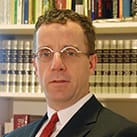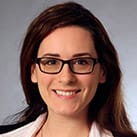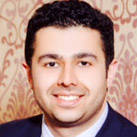Financial Risk and Network Theory 2015

9 Sep 2015
Time to be confirmed
By invitation only

Cambridge Judge Business School
Trumpington St
Cambridge
CB2 1AG
United Kingdom
Overview
In collaboration with Journal of Network Theory in Finance
Financial institutions and markets are highly interconnected, but literature has only recently begun to emerge that maps these interconnections and assesses their impact on financial risks and returns. The conference celebrates contributions to the Journal of Network Theory in Finance and aims to spark interest and feed new collaborations in this emerging multidisciplinary field.

The Financial Network Visualisation Prize
We are keen to promote and encourage visualisation techniques as a way of helping people understand complex patterns of data in the comprehension of financial networks.
At last year’s conference we were very impressed by the quality and range of visualisation techniques applied in the presentation of networks, and examples from the presentations were collected in a showcase of techniques.
This year we would like to award a prize, the Cambridge Centre for Risk Studies Prize for Financial Network Visualisation, for the best network visualisation presented at the Conference on 9 September. The winning image will be reproduced as a large-scale framed poster for the presenter and their institution.
Research areas
Topics include but are not limited to the following:
- empirical network analysis that enables better understanding of financial flows, exposures and markets
- modelling and simulation techniques for measuring interdependent financial risks
- new metrics and techniques for identifying central, vulnerable or systemically important institutions and markets in financial networks and informs regulatory strategies for improving financial stability
- network modelling of time-series data for financial risk management, asset allocation and portfolio management
- social network analysis (SNA) in finance, eg for making credit and investment decisions
- applied network visualisation techniques that improve the communication of financial risks and rewards
- analysis of counterparties and their risk exposure from interconnectivity with the financial system
Speakers
Dr Kimmo Soramäki
Founder & CEO, Financial Network Analytics, and founding Editor-in-Chief of the "Journal of Network Theory in Finance"
Kimmo started his career as an economist at the Bank of Finland where he developed in 1997 the first simulation model for interbank payment systems. In 2004 while at the research department of the Federal Reserve Bank of New York, he was among the first to apply methods from network theory to improve our understanding of financial systems. During the financial crisis of 2007-2008 Kimmo advised several central banks, including the Bank of England and European Central Bank, in modelling interconnections and systemic risk. This work led him to found FNA in 2010 to solve important issues around financial risk and for exploring the complex financial networks that play a continually larger role in the world around us. Kimmo holds a Doctor of Science in Operations Research and a Master of Science in Economics (Finance), both from Aalto University in Helsinki.
Professor Stefano Battiston
SNF Professor, Department of Banking & Finance, University of Zurich
Stefano Battiston is SNF Professor at the Department of Banking and Finance of the University of Zurich. His work applies the complex networks approach both to the empirical analysis of large economic networks and the modelling of their dynamics. Since several years, his main interests have been financial contagion, default cascades, and propagation of financial distress, where he combines the insights from the statistical mechanics of networks with the analysis of economic incentives.
He has been involved in many international projects, including FOC (Forecasting Financial Crises) the first European project aimed at anticipating structural instabilities in the global financial networks. He is now the coordinator of the FET project SIMPOL that investigates policy modelling in finance and climate finance.
From 2015 he also coordinates the FET project DOLFINS that investigates how to better channel finance towards sustainable economy in a networked economy. Within the Financial Stability Program directed by the Nobel laureate Joseph Stiglitz and funded by the Institute of New Economic Thinking, Stefano Battiston coordinates the Working Group on Financial Networks.
Dr Mark D Flood
Research Principal, Office of Financial Research, US Treasury
Mark D.Flood did his undergraduate work at Indiana University in Bloomington, where he majored in finance (BS, 1982), and German and economics (BA, 1983). In 1990, he earned his PhD in finance from the Graduate School of Business at the University of North Carolina at Chapel Hill. He has taught finance and business at universities in the US and Canada, and worked as a financial economist on issues of regulatory policy and risk management at the Federal Reserve Bank of St Louis, the Office of Thrift Supervision, the Federal Housing Finance Board, and the Federal Housing Finance Agency. He was a founding member of the Committee to Establish a National Institute of Finance. He is currently a Research Principal in the Treasury’s Office of Financial Research. His research has appeared in a number of scholarly journals, including the Review of Financial Studies, the Annual Review of Financial Economics, Quantitative Finance, the Journal of International Money and Finance, the Federal Reserve Bank of St Louis Review, and in the two-volume Handbook of Financial Data and Risk Information.
Yaacov Mutnikas
Managing Director, Markit Group
Yaacov Mutnikas is Managing Director of the Markit Group. Before joining Markit Yaacov was a Senior Advisor at the Bank of England, focused on financial networks, systemic risk issues and advanced analytics. Prior to this, he worked on trading matters at Bridgewater Associates, the largest hedge fund in the world. Prior to that Yaacov had a long tenure at Algorithmics where he held a number of concurrent roles including Chief Technology Officer as well as head of Financial Engineering.
Alexander Denev
Founder, GraphRisk
Alexander has more than 10 years of experience in finance in different countries across Europe and is currently of GraphRisk, a company aimed at promoting the use of graphical models in risk management and asset allocation, and Senior Advisor to Risk Dynamics. He is currently involved in projects preparing major US and European banks for the CCAR/EBA stress testing exercises.
Alexander was a Senior Team Leader in the wholesale modelling team at the Royal Bank of Scotland, where his responsibilities included development of the stress testing methodology, country risk ranking and early warning indicators used in the investment bank plus development of EAD and LGD models. Prior to that, he worked in the Royal Bank of Scotland as a Fixed Income Structure leading the Tail Hedging project of the bank. He provided advice and devised hedging products for big institutional clients (Pension Funds and Insurance Companies). Before joining RBS, Alexander was in charge of the Basel II/III implementation project for the European Investment Bank (EIB) and European Investment Fund (EIF). He was also leading the stress testing exercises both for the EIB and the EIF. He participated in the engineering of both the EFSF (European Financial Stability Facility) and the ESM (European Stability Mechanism). Prior to that, he covered different specialist and managerial positions in risk management departments in different large international groups such as National Bank of Greece, Societe Generale and BNP Paribas.
Alexander holds degrees in Mathematical Finance (University of Oxford) where, after graduating, he taught Bayesian risk management. He also holds a BSc and MSc in Engineering Physics (University of Rome). He is author of papers in finance on topics ranging from stress testing to asset allocation.
Dr Andrew Coburn
Director of External Advisory Board, Centre for Risk Studies
Andrew Coburn manages the External Advisory Board of the Centre for Risk Studies, coordinating the inputs of consumers of research into the Centre’s risk agenda. Andrew is the principal coordinator of the research programme on ‘System Shock’ at the Centre.
Andrew is one of the leading contributors to the creation of the class of catastrophe models that over the past 20 years has come to be an accepted part both of business management in financial services and of public policy making for societal risk. He has extensive experience in developing models and using them for business decision support. Andrew has also provided research inputs into government policy, such as House of Congress legislation on terrorism risk management policy and urban planning for disaster mitigation in Mexico, Metro Manila, and Southern Italy.
Dr Andrew Coburn is a member of the senior management of Risk Management Solutions, the leading provider of catastrophe risk models to the insurance industry.
Professor Giulia Iori
Professor of Economics, City University London
Professor Iori obtained a BSc and a PhD in Physics from the University of Rome. Between 1993 and 1998 she was a research fellow in theoretical physics at the University of California Santa Cruz, the CEA-Saclay in Paris and the University of Barcelona. Before joining City University London as a Professor of Economics, she worked at the University of Essex and at Kings College London.
Her current research interests include: high-frequency financial time series analysis, option pricing and hedging, risk evaluation, market microstructure and complexity in economic networks. She is the author of several peer-reviewed papers in leading journals in finance and physics, and her work has been funded by the British Academy, the European Commission, the EPSRC plus a number of small grants from national and international awarding bodies. She was awarded the Lamfalussy Fellowship from the European Central Bank in 2003. She is an associate editor for Journal of Economic Behaviour and Organisation, Journal of Economics Dynamics and Control and Journal of Economic Interaction and Coordination. She regularly serves as expert grant evaluator for the British Council, the EPSRC, the ESR, the European Commission and the Italian Minister for the University and research (MIUR). She is a member of the London Mathematical Society.
Kartik Anand
Economist, Deutsche Bundesbank
Kartik Anand is an economist within the Research Centre at the Deutsche Bundesbank. He previously worked at the Bank of England and the Bank of Canada, where he was responsible for the development of top-down stress-testing models. He has written papers on financial crises, stress-testing, bank funding and network theory. His research has been published in Quantitative Finance, Journal of Banking and Finance and Journal of Economic Dynamics and Control, amongst others. Kartik obtained his PhD in Applied Mathematics from the University of London, MSc from King’s College, London and BA from Johns Hopkins University.
Christoph Siebenbrunner
Expert on Stress Testing & Systemic Risk Modelling, Oesterreichische Nationalbank (OeNB)
Christoph is an expert on stress testing and systemic risk modelling, working at the Austrian central bank, and a PhD candidate in Economics & Engineering at the Vienna University of Technology and Science. His work on stress testing is recognised internationally, he is a lecturer at the IMF, invited conference speaker and was recently seconded to the ECB to work on stress test models. His research interests include applications of network theory, optimisation and AI-based methods and agent-based models in finance and macro-financial modelling. Christoph studied operations research information systems and financial economics at Vienna University of Economics (WU) and Toulouse School of Economics. He holds a masters degree from WU and was awarded the Austrian National Award for the best graduates for his master thesis on Applications of Evolutionary Algorithms in Economics.
Michela Rancan
Scientific Officer, Economic and Financial Analysis Unit, Joint Research Centre of the European Commission
Michela Rancan is a Scientific Officer in the Economic and Financial Analysis Unit at the Joint Research Centre of the European Commission. Before that, she was Jean Monnet Fellow at the European University Institute and an intern at the European Central Bank. Michela holds a PhD from Padova University. Her research interests cover financial stability, empirical finance and networks.
Dr Marco Galbiati
Senior Economist, Bank of England
Marco Galbiati is senior economist at the Bank of England, in the division forecasting the UK economy in support to the Monetary Policy Committee. He has previously worked at the European Central Bank and in the Monte dei Paschi Group (wealth management) and holds a PhD in game theory from the European University Institute. Marco Galbiati is author of a number of papers in the fields of mechanism design, applied network theory, financial infrastructures.
Ivana Ruffini
Senior Policy Specialist, Federal Reserve Bank of Chicago
Ivana Ruffini is a Senior Policy Specialist at the Federal Reserve Bank of Chicago, where she contributes to the Federal Reserve’s position on public policy issues involving financial markets. She analyses the impact and efficacy of financial market regulations, with a focus on OTC derivatives, privately negotiated financial instruments, and central counterparty clearing.
Prior to joining the Federal Reserve in 2010, Ruffini was active in the alternative investment space as a private equity investment professional, a derivatives trader and a credit risk specialist. Her prior employers include Baird Capital Partners, One Equity Partners, JP Morgan and Bank One.
Dr Hitoshi Hayakawa
Assistant Professor, Hokkaido University
Hitoshi Hayakawa is Assistant Professor at Hokkaido University in Japan. He is a faculty member of Graduate School of Economics and Business Administration. He is also enrolled in Creative Research Institution, an inter-department institution that aims to foster next generation leaders of Interdisciplinary Research Areas.
He received a PhD in Economics from the University of Tokyo in January 2014. Prior to this, he worked for the Nomura Research Institute.
His main research interests are in financial economics. His ongoing projects include theoretical researches on interbank settlement systems. In his working papers, he developed a graph-theoretic framework to examine payment network, and applied the framework to examine effectiveness of central clearing counterparty, liquidity saving mechanism. His research has been presented at several international conferences.
Dr Pawel Fiedor
Postdoctoral Research Fellow, African Institute of Financial Markets and Risk Management, University of Cape Town
Pawel Fiedor is a Postdoctoral Research Fellow with the African Institute of Financial Markets and Risk Management within the University of Cape Town. His research interests include modelling of financial networks, econophysics, complex systems studies, and the application of information and network theories to socio-economic systems. Pawel has published papers in high impact international journals such as Physical Review E, but he also has hedge fund industry experience. He is a member of the Royal Economic Society and the IEEE.
Professor Sheri Markose
Professor of Economics, University of Essex
Sheri Markose is a professor of Economics at the University of Essex. She was a Senior Consultant (2011–2014) at the Financial Stability Unit of the Reserve Bank of India where she oversaw the financial network project for systemic risk management. She was the founder Director (2002–2009) of the multidisciplinary Centre for Computational Finance and Economic Agents, which pioneered a postgraduate curriculum in Economics and Finance that uses agent-based modelling and complexity economics. In 2013, she was an academic advisor to the OTC Derivatives Coordination Group of the BCBS and FSB for the Macroeconomic Impact Assessment of OTC Derivatives Regulatory Reforms (MAGD). Her recent publications include systemic risk analytics for financial networks and also risk modelling using extreme value theory.
Dr Mark Paddrik
Interdisciplinary Researcher, Office of Financial Research, US Treasury
Mark Paddrik is an Interdisciplinary Researcher with the Office of Financial Research. Dr Paddrik holds his PhD in Systems Engineering from the University of Virginia. His current research focuses on the application of agent-based modelling for stress testing, market microstructure, and financial network-based monitoring.
Dr Daniel Ladley
Senior Lecturer in Finance, University of Leicester, and Deputy Director, Leicester Institute of Finance
Dr Daniel Ladley is Senior Lecturer in Finance at the Department of Economics, University of Leicester and Deputy Director of the Leicester Institute of Finance. He holds a PhD in finance from Leeds University Business School. His research applies computational and numerical techniques to question concerning market microstructure, regulation, and the analysis of systemic risk in financial systems.
Dr Ali Rais Shaghaghi
Research Assistant, Centre for Risk Studies
Ali Rais Shaghaghi was a Research Assistant at the Centre for Risk Studies, University of Cambridge, and researched a model of contagion effects in the international banking network. He was previously a KTP Associate and a Marie Curie Fellow at the University of Essex. Ali holds a PhD in Computational Finance from the Centre for Computational Finance and Economics Agents at the University of Essex. His research mainly focused on analysing systemic risk and contagion in financial systems using computational network models.
Professor Spiros Bougheas
Professor in Economics, University of Nottingham
Spiros has been a member of staff at the University of Nottingham since 1999 where currently he is a Professor in Economics. His research areas are financial economics and international trade. Recently he is exploring issued related to the stability of the banking system and applying contract theory to explore issues related to financial intermediation.
Niels Anthonisen
Associate Professor, Mount Allison University
Niels Anthonisen has taught economics since 1997 at Mount Allison University, a small Liberal Arts College in the Canadian Maritimes, where he is currently an Associate Professor. Niels has been interested in the presence of network effects in the macroeconomy for several years now, and has written several papers (four, to be exact) on the influence of an underlying network structure on various macroeconomic phenomena.
Dr Olaf Bochmann
Research Associate, Centre for Risk Studies
Olaf Bochmann is a postdoctoral research associate at the Centre for Risk Studies. He was previously a postdoctoral fellow at the University of Oxford, and he holds a PhD from the University of Leuven. His research mainly focuses on systemic risk and financial stability, as well as complex networks and agent-based modelling.
Tomaso Aste
Professor of Complexity Science, University College London
Tomaso Aste is a statistical physicist, interested in understanding and modelling complex, internetworked systems such as financial, social, biological and natural systems. He graduated in Physics at the University of Genoa and has a PhD in Material Sciences from Politecnico di Milano. Tomaso’s research is data-driven and concerns data analytics, information filtering, complex dynamics and complex structures. He is a Professor of Complexity Science and Head of the Financial Computing and Analytics Group at UCL – Computer Science, which is researching finance, technology, society, economics and their interplay. Prior to UCL, Tomaso was Reader at the School of Physics, University of Kent (2009-2012) and before Associate Professor at the Department of Applied Mathematics at the Australian National University (2002-2009). He is Director of the UCL Centre for Blockchain Technologies, Programme Director of the MSc in Financial Risk Management, Vice Director of the Centre for Doctoral Training in Financial Computing & Analytics, Member of the Board of the ESRC funded LSE-UCL Systemic Risk Centre, Editor for a few journals. He collaborates with many major financial institutions and with a large number of start-ups and businesses, in the FinTech and digital economy area.
Martín Saldías
Financial Sector Expert, International Monetary Fund
Martín Saldías is a financial sector expert at the Monetary and Capital Markets Department of the IMF in Washington. A Luso-Bolivian national, he obtained his PhD degree in Finance from Ghent University and was a research economist at Banco de Portugal prior to joining the Fund. His main research interest is in financial stability and its interaction with monetary policy. His work in network analysis is focused on correlation networks applied to banks, mutual funds and financial flows.
Dr Peter Schwendner
Senior Lecturer, Institute for Wealth and Asset Management, ZHAW School of Management and Law
Peter Schwendner is a Senior Lecturer at the Institute for Wealth and Asset Management at ZHAW School of Management and Law, Zurich, Switzerland. His research interests are financial markets, asset management and network analytics. Peter received a PhD in Physics in 1998 for his research at Max Planck Institute in Goettingen. He has 15 years’ work experience in the financial industry as a head of quantitative research at Sal. Oppenheim and as a partner at Fortinbras Asset Management, developing investment products.
Dr Jochen Papenbrock
Founder & Managing Director, Firamis
Dr Jochen Papenbrock is founder and managing director of Firamis. Firamis stands for “Financial Risk and Asset Management with Intelligent Systems”. It is a technology expert firm and pioneer in the field of network modelling/tail risk measurement and provides the appropriate systems for risk management, portfolio optimisation, asset allocation, market and performance analysis, and trading/hedging. Firamis works with partners in a worldwide network of researchers and investment/risk professionals. One of the main services of Firamis is to help their asset management clients to make use of the potential of modelling/measuring/managing asset interconnectedness. Jochen earned his Doctorate in Business Engineering at Karlsruhe Institute of Technology (KIT).
Goetz von Peter
Senior Economist, Bank for International Settlements
Goetz holds a PhD in economics from Columbia University, and an MSc and BSc from the London School of Economics. Since joining the BIS in 2004, Goetz von Peter has worked as an economist in the various research units of the Monetary and Economic Department. He has written on financial crises, international banking, interbank markets and network analysis, as well as natural catastrophes and global (re)insurance. His research appeared in the Journal of Financial Intermediation, Journal of Banking and Finance, International Finance and the Journal of Economic Literature, among others. Goetz is also a regular contributor to the BIS Quarterly Review, with a focus on current financial market developments and the BIS international banking statistics. From 2009 to 2011 he served the Committee on the Global Financial System (CGFS) and coordinated various working groups in that capacity.
Fabio Caccioli
Lecturer, University College London
Fabio Caccioli is a lecturer in the Department of Computer Science at University College London. He was previously a research associate in the Centre for Risk Studies, University of Cambridge, and a postdoctoral fellow at the Santa Fe Institute (Santa Fe, US). Fabio holds a PhD in Statistical Physics from the International School for Advanced Studies (Trieste, Italy).
Mateusz Gatkowski
Researcher, Centre for Computational Finance and Economic Agents, University of Essex
Mateusz Gatkowski holds a PhD degree in Quantitative Economics from University of Essex. His research focuses on the stability of financial networks, systemic risk and macroprudential regulation. He has been working in a research group of Professor Sheri Markose and was Marie Curie Research Fellow for COMISEF (Computational Optimisation Method in Statistics, Economics and Finance). He studied quantitative methods and information systems at the Warsaw School of Economics and received Master degree in Economics from European University Institute in Fiesole (Italy). Mateusz has been working also in the consulting industry for a few years for Andersen Business Consulting and then the Boston Consulting Group. In the last few years he has been managing independent consulting projects for SMEs financed by the Polish Agency for Industry Development. Mateusz recently obtained a research grant for studying networks of patents in the search of so-called patent thickets using network analytics approach.
Laura Silvestri
Research Economist, Bank of England
Laura Silvestri is a research economist in the Capital Markets Division of the Bank of England. She completed her PhD in Mathematical Finance at the University of Rome La Sapienza. Prior to that she received a MS in Theoretical Physics. Her research focuses on systemic risk and financial networks.
Daniel Ralph
Director, Centre for Risk Studies
Professor Daniel Ralph is a Founder and Director of the Centre for Risk Studies, Professor of Operations Research at Cambridge Judge Business School, and a Fellow of Churchill College.
Daniel received his PhD in 1990 from the University of Wisconsin Madison. He was a faculty member of the Mathematics & Statistics Department at the University of Melbourne before coming to the University of Cambridge for a joint appointment in the Engineering Department and Cambridge Judge Business School.
Daniel’s research interests include optimisation methods, equilibrium models for electricity markets, and risk in business decision making. He is Editor-in-Chief of Mathematical Programming (Series B).
Resources
Applications of Network Theory in Finance
Watch the presentation on Vimeo
The Price of Complexity in Financial Networks
Watch the presentation on Vimeo
On Counterparty Networks
Watch the presentation on Vimeo
Operationalising Systemic Risk
Watch the presentation on Vimeo
Financial Networks as Probabilistic Graphical Models
Watch the presentation on Vimeo
Financial Catastrophe Risk Modelling
Watch the presentation on Vimeo
The Missing Links: A Global Study on Uncovering Financial Network Structure from Partial Data
Watch the presentation on Vimeo
Quantifying the Importance of Different Contagion Channels as Sources of Systemic Risk
Watch the presentation on Vimeo
All-or-Nothing Payments & Financial Network Fragility
Watch the presentation on Vimeo
Characterisation of Lower-bound and Upper-bound of Required Settlement Fund under Real-Time Gross Settlement
Watch the presentation on Vimeo
Structural Sustainability of the Global Supply System
Watch the presentation on Vimeo
Bank Networks & Systemic Risk: Micro-evidence before and after the National Banking Acts of 1863-1864
A Network Analysis of the 1873 Financial Crisis
Watch the presentation on Vimeo
CCPs and Network Stability in OTC Derivatives Markets in the 2007-2008 Financial Crisis
Watch the presentation on Vimeo
Systemic Risk and the Optimal Seniority Structure of Banking Liabilities
Watch the presentation on Vimeo
Microeconomic Shocks and Macroeconomic Fluctuations in a Dynamic Network Economy
Watch the presentation on Vimeo
Cambridge Banking Model
Watch the presentation on Vimeo
Correlation Networks and Spatial Dependence: Theory and Applications
European Government Bond Dynamics and Stability Policies: Taming Contagion Risks
DebtRank: A Microscopic Foundation for Shock Propagation
Watch the presentation on Vimeo
Network Analysis of Systemic Risk, Core Global Banking System and of Eurozone Crisis: Early Warning Signals
Watch the presentation on Vimeo
An Empirical Analysis of Network Reconstruction Methods using UK CD Networks
Watch the presentation on Vimeo
Closing Remarks
Organising committee
- Andrew Coburn, Centre for Risk Studies, University of Cambridge
- Camelia Minoiu, International Monetary Fund
- Peter Sarlin, Hanken School of Economics and RiskLab Finland
- Kimmo Soramäki, Financial Network Analytics































